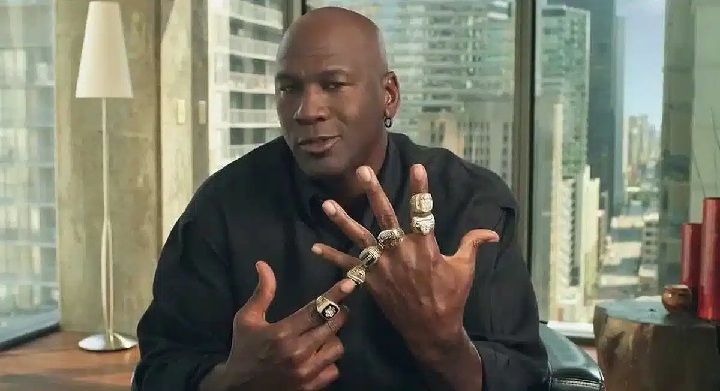
Michael Jordan, often hailed as the greatest basketball player of all time, has left an indelible mark on the NBA. His career is filled with numerous accolades, records, and unforgettable moments. Central to his legacy are the championship rings he earned during his time with the Chicago Bulls. But how many rings does Michael Jordan have? This article will explore Michael Jordan’s championship achievements, the significance of each ring, and the impact he had on the sport of basketball.
Early Career and the Road to Championships
Before Michael Jordan became synonymous with winning, he had to overcome numerous challenges. Drafted by the Chicago Bulls in 1984 as the third overall pick, Michael Jordan quickly made a name for himself as a dominant scorer and a fierce competitor. Despite his individual success, the Bulls struggled in the early years of his career.
Jordan’s first few seasons in the NBA were marked by extraordinary personal achievements. He won the Rookie of the Year award in 1985 and became a regular fixture in the All-Star Game. However, team success eluded him as the Bulls often fell short in the playoffs. It wasn’t until the late 1980s and early 1990s that things began to change.
The First Three-Peat: 1991-1993
Michael Jordan’s first NBA championship came in 1991 when the Chicago Bulls defeated the Los Angeles Lakers in the Finals. This victory marked the beginning of the Bulls’ dominance in the NBA. Under the leadership of head coach Phil Jackson and the contributions of key players like Scottie Pippen, Horace Grant, and John Paxson, the Bulls became a formidable force.
The 1991 championship was followed by two more consecutive titles in 1992 and 1993. The Bulls defeated the Portland Trail Blazers and the Phoenix Suns, respectively, to complete their first three-peat. During these years, Michael Jordan was not only the centerpiece of the team but also the Finals MVP for each series, cementing his status as the best player in the league.
A Brief Retirement and Return
After the 1993 season, Michael Jordan shocked the world by announcing his retirement from basketball. The decision came in the wake of personal tragedy, as his father was tragically murdered earlier that year. Jordan pursued a brief career in baseball, playing for the Birmingham Barons, a minor league affiliate of the Chicago White Sox.
However, the allure of basketball proved too strong, and Michael Jordan returned to the NBA in March 1995. His comeback was met with great anticipation, but the Bulls were unable to reclaim their former glory immediately, falling to the Orlando Magic in the playoffs.
The Second Three-Peat: 1996-1998
The following season, Michael Jordan and the Bulls were back with a vengeance. The addition of key players like Dennis Rodman and the continued excellence of Scottie Pippen helped the Bulls dominate the league. In the 1995-96 season, the Bulls set a then-record with 72 regular-season wins, a testament to their dominance.
From 1996 to 1998, the Bulls won three consecutive championships once again, defeating the Seattle SuperSonics and the Utah Jazz (twice) in the Finals. Michael Jordan was once again the Finals MVP for each of these series, showcasing his ability to perform at the highest level when it mattered most.

The Legacy of Six Rings
In total, Michael Jordan won six NBA championship rings, all with the Chicago Bulls. Each ring represents a season of hard work, determination, and unparalleled skill. Jordan’s six rings are often used as a benchmark to compare his greatness to other players in the league. His ability to lead his team to victory repeatedly and his dominance in the Finals have solidified his legacy as a champion.
Michael Jordan’s Impact on the NBA
Michael Jordan’s influence extends far beyond his six championship rings. He revolutionized the game of basketball with his incredible athleticism, scoring ability, and competitive spirit. Jordan was a global icon who brought unprecedented attention to the NBA, helping to grow the sport’s popularity worldwide.
His impact is also evident in the numerous records and accolades he accumulated throughout his career. Jordan was a five-time regular-season MVP, a ten-time scoring champion, and a fourteen-time All-Star. His career averages of 30.1 points per game in the regular season and 33.4 points per game in the playoffs are both records that still stand today.
Post-Retirement and Continued Influence
After retiring for the second time in 1999, Michael Jordan made a brief return to the NBA with the Washington Wizards from 2001 to 2003. While his time with the Wizards did not result in any championships, it further demonstrated his enduring love for the game and his ability to compete at a high level even in his late thirties.
Jordan’s influence continues in his post-playing career. As the principal owner and chairman of the Charlotte Hornets, he remains actively involved in the NBA. His brand, Air Jordan, a subsidiary of Nike, continues to be a dominant force in the athletic footwear and apparel market, further cementing his legacy off the court.
Conclusion
Michael Jordan’s six championship rings are a testament to his greatness as a basketball player. Each ring symbolizes a season of excellence, teamwork, and determination. Michael Jordan’s impact on the NBA and the sport of basketball is immeasurable, and his legacy as one of the greatest athletes of all time is firmly established. As fans continue to celebrate his achievements and new generations are introduced to his greatness, the legend of Michael Jordan and his six rings will endure for years to come.

